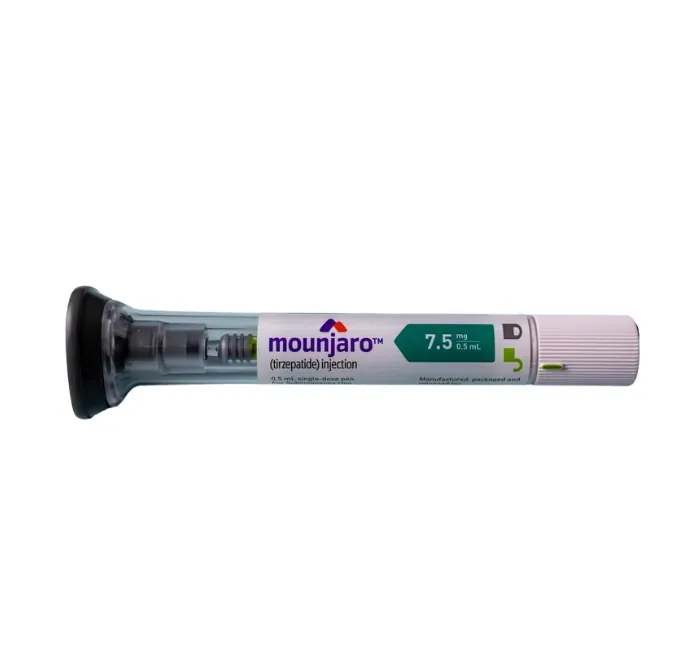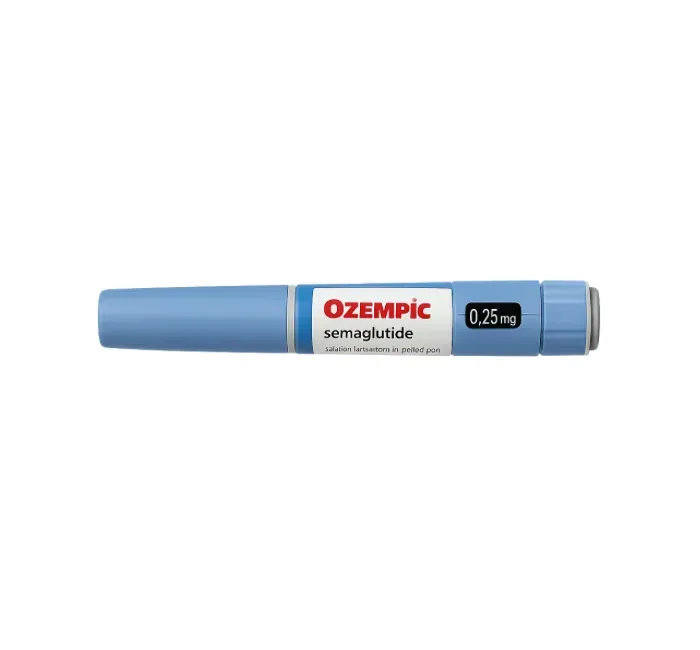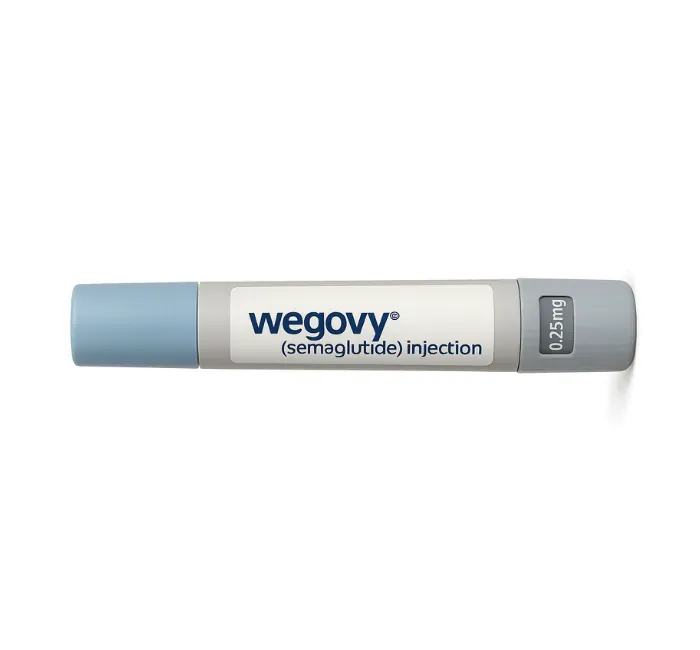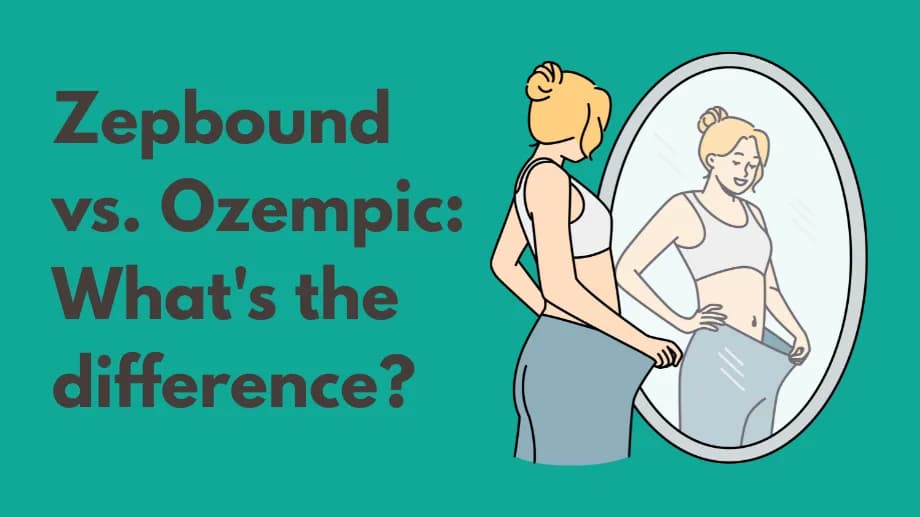How do you inject Zepbound?
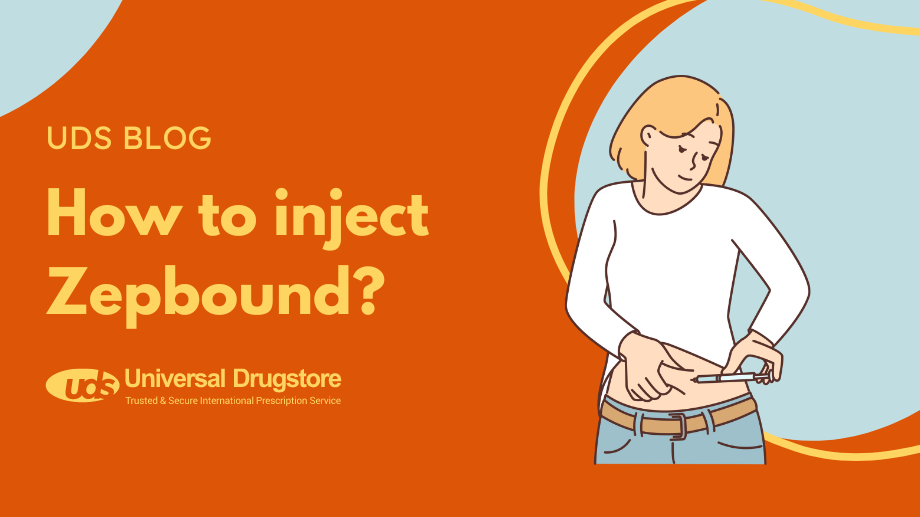
Zepbound (tirzepatide) injection is approved as a weight loss medication when used along with diet and exercise for certain adults. It is given once a week as an injection under your skin. It is important that you inject this medication properly to ensure you receive the correct dose. Your doctor or another healthcare professional will show you how to give yourself these injections at home before you give your first dose.
Read the Instructions for Use and the Medication Guide before using your Zepbound prefilled pen and each time you get a refill as there may be new information.
Preparing to use your Zepbound pen
- Remove your pen from the refrigerator. Leave the gray base cap on your pen until you are ready to use it.
- Check the pen label to make sure you have the right medicine and dose, and that it has not expired. Inspect the pen to make sure that it is not damaged. The medicine in your Zepbound pen should not be frozen, cloudy, or have particles in it. It should appear clear to slightly yellow.
- Wash your hands thoroughly.
- Choose your injection site. You can inject Zepbound under the skin (subcutaneously) of your stomach, thigh, or the back of your upper arm. If you choose the back of your upper arm, you will need someone else to give your injection.
Giving your Zepbound injection
- Pull off the gray base cap and throw it away.
- Place the clear base flat against your skin at the injection site you chose and then unlock the pen by turning the lock ring.
- Press and hold the purple injection button for up to 10 seconds. You should hear 2 clicks. The first click indicates that the injection has started and the second click means it has finished. You will know your injection is complete when the gray plunger is visible.
Disposing of your Zepbound single-dose pen
Put your used pen in an FDA-approved sharps container immediately after using it. Don’t throw your injection pen in your household trash.
If you don’t have an FDA-cleared sharps container, you can use a container that is made of heavy-duty plastic and able to be stable and upright while in use. You must be able to close it with a lid that is puncture-resistant, tight-fitting, and leak-resistant. You should label the container to warn others there is hazardous waste inside it.
When your sharps container is almost full, you should follow your community guidelines for the correct way to dispose of it. Check with your local or state laws about these guidelines.
For more information about your state’s guidelines, visit the FDA’s website at: http://www.fda.gov/safesharpsdisposal.
Read on as we discuss how Zepbound works, what it is used for, and its side effects, as well as answer some other frequently asked questions.
Zepbound FAQs
What is Zepbound used for?
Zepbound (tirzepatide) is a brand-name medication that is FDA-approved along with regular exercise and a reduced-calorie diet for chronic weight management in adults with an initial body mass index (BMI) of:
- 30 kg/m^2 or higher (obesity)
- 27 kg/m^2 or higher (overweight) with at least one weight-related condition such as high cholesterol, high blood pressure (hypertension), type 2 diabetes, heart disease, or obstructive sleep apnea
How does Zepbound help you lose weight?
Tirzepatide, the active ingredient in Zepbound, is a glucagon-like peptide-1 (GLP-1) and glucose-dependent insulinotropic polypeptide (GIP) receptor agonist. It works by acting like GLP-1 and GIP, 2 hormones released in your gut that are involved in the regulation of blood sugar and appetite. GLP-1 and GIP target areas in your brain to help decrease appetite and slow down digestion to help you feel full faster and longer. This can help you eat less and lose weight. They also stimulate your pancreas to release insulin, which reduces your blood sugar levels.
What are the possible side effects of Zepbound?
The most common side effects of Zepbound in clinical trials when compared to placebo include:
- Nausea
- Diarrhea
- Vomiting
- Indigestion
- Constipation
Some other possible side effects of Zepbound include:
- Burping
- Fatigue
- Stomach pain
- Hair loss
- Injection site reactions
- Dizziness
Zepbound may also cause more serious side effects including:
Shop Medications
- Serious allergic reactions (hives, swelling of your throat and tongue, trouble breathing)
- Increased risk of thyroid cancer or thyroid tumors
- Pancreatitis (inflammation of your pancreas)
- Kidney damage including kidney failure
- Gallbladder problems including gallstones
- Hypoglycemia (dangerously low blood sugar)
- Vision changes in people with type 2 diabetes (diabetic retinopathy)
- Worsening depression or suicidal thoughts
These are not all of the possible adverse events of Zepbound. You should always seek medical advice from a healthcare professional for any questions or concerns about your medical condition or treatment. You should also read all the patient information, including your Medication Guide that comes with Zepbound. You can report side effects to the FDA at 1-800-FDA-1088 or www.fda.gov/medwatch.
Who should not use Zepbound?
The Food and Drug Administration (FDA) recommends people who have a personal or family history of medullary thyroid carcinoma (cancer) should not use Zepbound along with people with Multiple Endocrine Neoplasia syndrome type 2 (MEN 2). You should also avoid this medication if you are allergic to tirzepatide or any inactive ingredient in this product.
What warnings or precautions are there with Zepbound?
You should be sure your healthcare provider is aware of all your medical conditions as they may be contraindications or you may need increased monitoring during treatment, including if you:
- Currently have or have a history of kidney or pancreas problems
- Have severe stomach problems such as slowed emptying of your stomach (gastroparesis) or problems with digesting food
- Currently have or have a history of diabetic retinopathy
- Are pregnant or plan on becoming pregnant
- Are breastfeeding or plan on breastfeeding
Oral birth control pills may not work as well if you take Zepbound. You will need to use another type of birth control for 4 weeks after starting this medication and for 4 weeks after each increase in your dose of Zepbound. Talk to your healthcare provider about which alternative birth control methods may be right for you.
Are there any drug interactions with Zepbound?
When Zepbound is taken with other prescription drugs, over-the-counter medications, vitamins, herbal products, and supplements, it may change how they work or increase the risk of side effects. Be sure to tell your healthcare provider about all your current medications, including:
- Other medications that can lower your blood sugar such as insulin
- Oral medications, since Zepbound slows down digestion and can change how much these medications are absorbed
What are the dosages for Zepbound?
Your healthcare provider will determine your maintenance dose for Zepbound. You will start at a low dose and then increase it gradually to help reduce the risk of side effects. The typical starting dose of Zepbound is 2.5 mg once weekly for 4 weeks. This dose is not indicated for chronic weight management. After 4 weeks at this dose, it should be increased to 5 mg once weekly. You can then increase this dose every 4 weeks if needed up to a maximum dose of 15 mg once weekly.
What should you do if you miss a dose of Zepbound?
If you miss a dose of Zepbound, inject the missed dose right away as long as it is within 4 days after the missed dose. If it has been more than 4 days, skip the missed dose and take your next dose on its regularly scheduled day. Do not take 2 doses of Zepbound within 3 days of each other.
What is the best time to take Zepbound?
Zepbound can be injected under the skin (subcutaneously) of your stomach (abdomen), thigh, or upper arm. Use Zepbound 1 time each week. You can inject Zepbound at any time of the day, but it is best to inject a dose on the same day each week.
How much weight can you lose on Zepbound?
In a phase 3 clinical trial, people taking a 15 mg dose of Zepbound, the highest dose, saw an average weight loss of 22.5% of their body weight, or around 52 pounds. The people in this study were obese or were overweight with at least one weight-related medical condition.
At lower doses, participants also lost weight: At the 10 mg dose, the average weight loss was about 21.4% (around 48 pounds), and at 5 mg, patients achieved an average weight loss of around 16% (around 35 pounds).
People in this study also ate a healthy diet and regularly exercised. As with all medications, your results can vary.
Related Medications
- Mounjaro (tirzepatide)
- Ozempic (semaglutide)
- Wegovy (semaglutide)
- Rybelsus (semaglutide)
- Trulicity (dulaglutide)
- Victoza (liraglutide)
- Saxenda (liraglutide)
